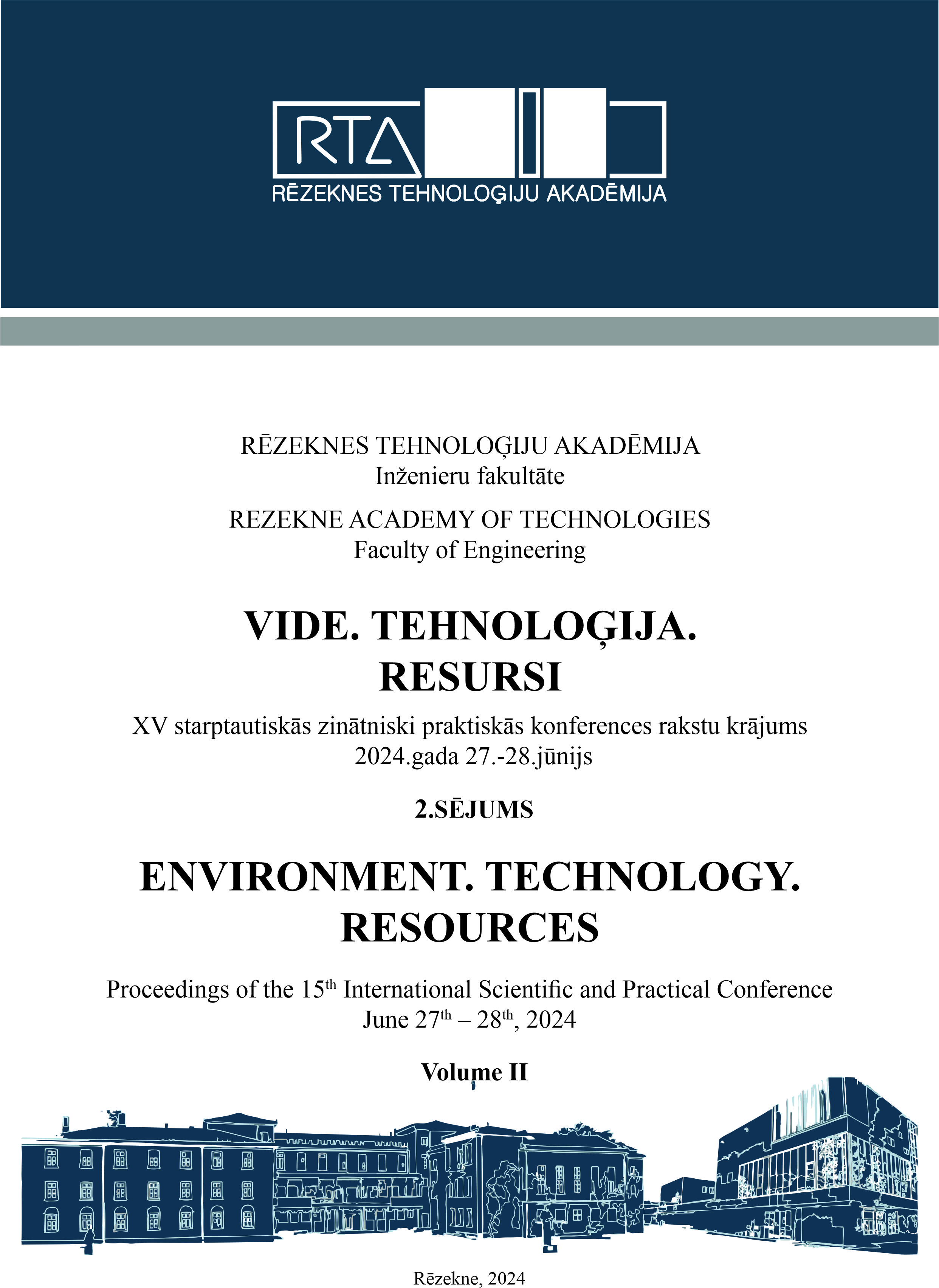AUTOMATED CREATION OF EDUCATIONAL QUESTIONS: ANALYSIS OF ARTIFICIAL INTELLIGENCE TECHNOLOGIES AND THEIR ROLE IN EDUCATION
DOI:
https://doi.org/10.17770/etr2024vol2.8101Keywords:
Artificial Intelligence (AI), educational technology, personalized learning, ethical considerations, technological challenges, algorithmic bias, data privacyAbstract
This study explores the integration of artificial intelligence (AI) in education, focusing on its potential benefits and challenges. Through an in-depth analysis of contemporary AI platforms and software technologies, it examines their suitability for educational environments. The study highlights AI's capacity to enhance personalized learning experiences, facilitate educational gaming and simulations, and support teachers in various tasks. However, ethical considerations regarding data privacy and algorithmic bias, as well as technical challenges related to software reliability, require careful attention. By providing insights into the transformative potential of AI in education, this research aims to inform stakeholders about the opportunities and risks associated with its implementation.
References
L Chen, Q. Liu, 2020. Enhancing Personalized Learning with Artificial Intelligence in Education. International Journal of Artificial Intelligence in Education, 30(3), 456-478
K Soh,. L. Lim, A survey on automatic question generation for educational assessment. Educational Technology & Society, 23(3), 220-235 (2020).
G. Cetin, M. Kayacik, The use of chatbots in education: A systematic review of the literature. Educational Technology Society, 24(3), 174-191 (2021).
N. Mostafazadeh, M. Mostafazadeh,Automatic question generation for educational contexts: A survey. ACM Computing Surveys (CSUR), 51(2), 1-36 (2018).
T. Nguyen, H. Hoang, Automatic question generation for educational purposes: A systematic review. Education and Information Technologies, 24(3), 2213-2240 (2019).
V. Aleven, McLaren, A new paradigm for intelligent tutoring systems: Example-tracing tutors. International Journal of Artificial Intelligence in Education, 19(2), 105-154 et. al. 2009.
Y. Li, B. Zhang, Artificial intelligence in education: A review of recent research. Educational Technology and Society, 25(1), 192-211 (2022)..
C. Conati, K. Vanlehn, Towards computer-based support of meta-cognitive skills: A computational framework to coach self-explanation. International Journal of Artificial Intelligence in Education, 20(4), 377-412 (2010).
N. Mostafazadeh, M. Mostafazadeh, Automatic question generation for educational contexts: A survey. ACM Computing Surveys (CSUR), 51(2), 1-36 (2018).
C. Chen, C. Chang, A neural network-based question generation approach for educational assessment. IEEE Transactions on Learning Technologies, 15(2), 223-233 (2022).
C. Chou, W. Wang, Artificial intelligence in education: A review of recent research. Educational Technology and Society, 21(3), 82-102 (2018).
Y. Hwang, K. Chang, The use of artificial intelligence in education: A systematic review of research on benefits, challenges, and future directions. Educational Technology & Society, 25(1), 212-233 (2022).
M. Khan, R. J. Mislevy, The future of automated scoring. Educational Measurement: Issues and Practice, 37(3), 2-10 (2021).
T. Brown, B. Mann, N. Ryder, Subbiah, (2020). Language models are few-shot learners. arXiv preprint arXiv:2005.14165 (2020).
Y. Cai, A survey of automated scoring for educational assessments. ACM Computing Surveys (CSUR), 55(2), 1-35 (2022).
I. Hsiao, J. Yang, Artificial intelligence in personalized learning: Asystematic review. IEEE Transactions on Education, 63(3), 276-291 (2020).
A. Holton, The impact of artificial intelligence on learning, teaching, and education. Journal of Educational Technology Development and Exchange, 11(1), 68-84 (2018).
Downloads
Published
Issue
Section
License
Copyright (c) 2024 Todor Rachovski, Desislava Petrova, Ivan Ivanov

This work is licensed under a Creative Commons Attribution 4.0 International License.



